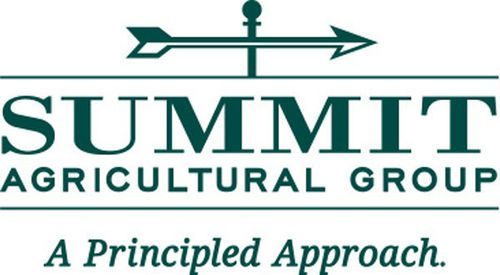Summit Agricultural Group has launched Summit Next Gen, a sustainable aviation fuel production platform that will provide a scalable supply of low-carbon jet fuel.
Summit Next Gen will utilize Honeywell’s Ethanol to Jet processing technology to convert ethanol into sustainable aviation fuel (SAF). Through the project, Summit Next Gen creates an additional market for low-carbon ethanol producers and advances the sustainability goals of the difficult to decarbonize aviation industry, according to a news release.
The project will produce over 250 million gallons of sustainable aviation fuel per year and is expected to be operational in 2025.
The global aviation industry demands over 100 billion gallons of jet fuel annually and is expected to double in the next 20 years with increasing passenger demand. Governments, companies, and consumers are demanding low-carbon alternatives to traditional jet fuel; however, the current production of SAF remains challenged by the undersupply of feedstocks consisting of vegetable oils, animal fats and waste oils. The ETJ pathway provides a scalable and cost competitive solution now to solve this problem, and this is largely attributable to advancements undertaken by ethanol producers who have continued to reduce their carbon footprints through adoption of new technologies such as carbon capture and storage (CCS) and investments to boost efficiency.
Growing low-carbon markets, recent state-level programs, and incentives created under the Inflation Reduction Act that are broadly supported by the biofuels, energy, and aviation industries catalyzed the creation of Summit Next Gen to meet growing demand for SAF. Sustainable aviation fuel is nearly identical to petroleum-based jet fuel sources and is currently approved at blend rates up to 50% by ASTM International providing a “drop in fuel” solution.
“The creation of Summit Next Gen and our partnership with a technology leader like Honeywell UOP sets a new standard for the agriculture, ethanol, and aviation industries,” said Bruce Rastetter, CEO of Summit Agricultural Group. “The agriculture and ethanol industries have a long history of continuous improvement producing more with less, and this has enabled forward-thinking ethanol producers to be favorably positioned for the present challenge of helping aviation reduce its carbon footprint.”
Summit Next Gen will be located in the U.S. Gulf Coast region, providing access to significant logistics and utility infrastructure. The company is advancing engineering and design and has selected Burns & McDonnell in collaboration with Honeywell for the development of the transformational project.
“Replacing fossil fuels with SAF enables a material reduction in aviation related GHG emissions. Expanding SAF feedstocks to include ethanol, biomass, and CO2 is essential to increasing the share of SAF of the total jet fuel demand,” said Barry Glickman, vice president and general manager, Honeywell Sustainable Technology Solutions. “We are delighted to collaborate with Summit Next Gen to combine Honeywell UOP ETJ technology with Summit Agricultural Group’s experience low-carbon biofuels to help the aviation industry accelerate its decarbonization.”
“ETJ is a natural next step for the ethanol industry,” said Summit Ag Investors President Justin Kirchhoff. “Scale, cost of production, and carbon footprint are the most important factors for the SAF industry, and we believe ethanol has a material advantage in these areas relative to existing SAF feedstocks.”







